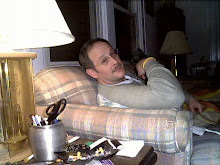The busy Lenten season culminating in the wonderful celebration of the Easter Triduum is behind us. Hopefully this will leave me time to write more here. I really just want to post a short note here to welcome my new friends whom I met helping with the Rite of Christian Initiation for Adults (RCIA) at my parish both as friends into my life and home to the Church of Jesus Christ.
I apologize for the times I was caught short or seemed unprepared for your questions. If ever in the future you have questions or concerns about the Faith, feel free to contact me.
I also want to thank you, for in teaching I learned so much. You made me delve deeper into the faith with your questions. This has been a great gift and I don;t know how I can ever repay you for that.
Now the task before you is great. You must live the Gospel. To this end, never stop learning, never stop questioning and seeking answers. You are the heirs of two thousand years of thought pondered by some of the greatest minds the world has known.
Preach the Gospel. And, when necessary, use words.
Pray without ceasing. Remember that our work can be our prayer when we perform our work for the greater glory of God. Place yourself with Jesus Christ becfore the Father for the sake of your loved ones and the whole world.
Persevere. My favorite Catholic writer of the last one hundred years, G.K. Chesterton once wrote that "the Christian ideal has not been tried and found wanting, but has been found difficult and left untried."
Finally, know that you and yours are in my prayers daily. I ask that you do the same for me.
God bless you all, and til next time, all the best. Joe
My new blog: The Radical Life
11 years ago
